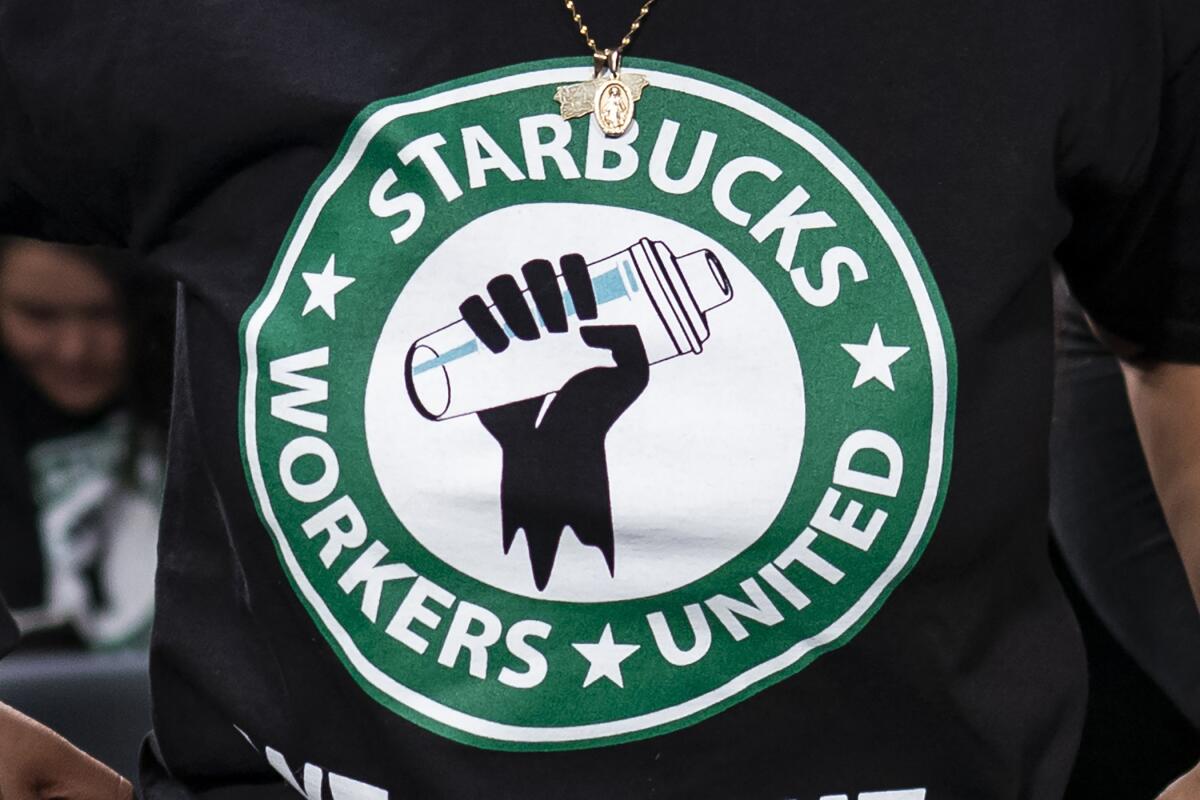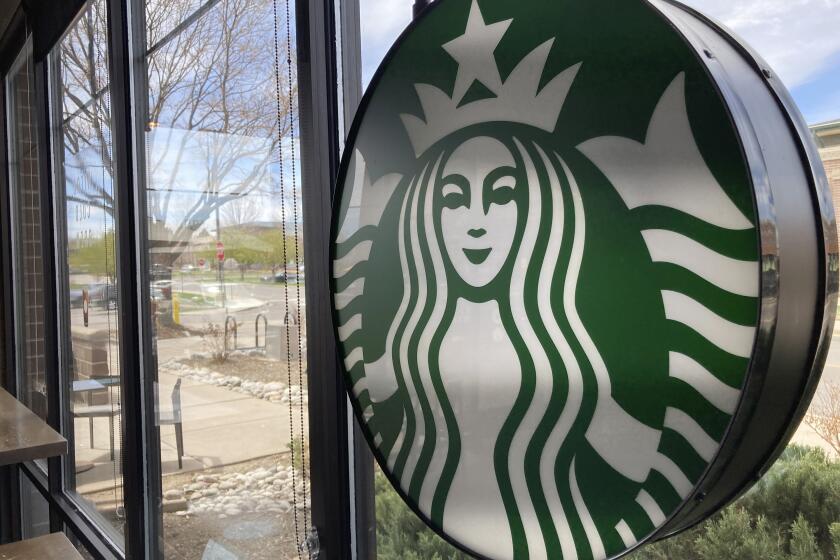Starbucks audit finds ‘missteps’ by management but no evidence of an ‘antiunion playbook’

- Share via
Starbucks, contending with unionization at hundreds of its U.S. stores, should bolster guidance on how it disciplines workers and measures compliance with collective bargaining rights, a third-party assessment of the company’s labor practices found.
The assessment — which shareholders requested in March against the company’s recommendation — found no evidence of an “antiunion playbook” suggesting “surreptitious means of interfering with employees’ freedom to choose.” It also ascribed “missteps” in how Starbucks has engaged with unionized workers mostly to the company’s lack of preparation for a wave of organizing, and to mistakes by local staff with no experience dealing with unions.
Workers United, which represents the bulk of unionized stores, “prepared thoroughly for its organizing efforts, had careful top-down leadership, and was effective at leveraging Starbucks’ early missteps to frame a ‘Starbucks is antiunion’ narrative,” according to the report prepared by Thomas Mackall, a consultant and former labor relations executive.
Still, Starbucks could enhance its human rights commitment, which includes a promise to respect labor organizing, and create materials that more clearly outline just how its staff can comply.
Votes tallied Tuesday at two Starbucks stores in Santa Cruz brought a growing union movement at the coffee giant to California.
As written, the commitment “does not provide meaningful behavioral guidance or a clear basis for compliance regarding freedom of association and effective recognition of the right of collective bargaining,” according to the report.
The report also found that discharges at locations that have organized happen at the same rate as at nonunionized stores, but that Starbucks could bolster the framework and standards for staff discipline given the “special attention” that terminations at unionized cafes face.
Starbucks can also give better training on how managers should communicate with unionized workers, after U.S. labor prosecutors have found that “store-level managers or supervisors have stepped out of bounds in many instances,” according to the report.
“Even well-intentioned managers operating in a delicate environment can have difficulty navigating the nuanced boundaries between that which is lawful and appropriate and that which is not,” according to the report.
Starbucks’ board is “intent on taking meaningful action,” according to a letter to shareholders by Chair Mellody Hobson and Jørgen Vig Knudstorp, who leads the nominating and corporate governance committee.
The two said that Chief Executive Laxman Narasimhan and his leadership team “have begun work against these findings to fully address opportunities identified.”
In the view of Workers United, the assessment “acknowledges deep problems in the company’s response to workers’ organizing,” according to an emailed statement.
“The report shows Starbucks has a long way to go to shift policy and deconstruct the massive antiunion apparatus that remains in place and is active today,” Starbucks Workers United said.
Regional directors of the U.S. National Labor Relations Board have issued more than 100 complaints accusing Starbucks of illegal tactics, including closing stores, firing union leaders and refusing to fairly negotiate at unionized cafes. Judges and NLRB members have ordered the company to reinstate 36 activists. Starbucks has denied wrongdoing, saying the union is the party refusing to negotiate in good faith.
A second union representing some Starbucks workers has also accused the company of failing to negotiate fairly, a charge that Starbucks contests.
More to Read
Inside the business of entertainment
The Wide Shot brings you news, analysis and insights on everything from streaming wars to production — and what it all means for the future.
You may occasionally receive promotional content from the Los Angeles Times.











